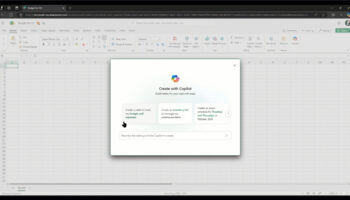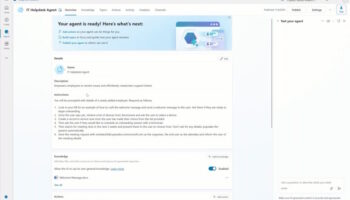Samsung isn't cool enough to copy Apple

Today, UK Judge Colin Birss confirms what Apple fans have claimed for years: Samsung isn't "cool enough" to copy the trendy fruit-logo company. But the result is opposite their meaning about copying badly. Birss ruled that Samsung's Galaxy Tab family of tablets do not imitate iPad, meaning violate Apple's registered design -- they're not "cool enough" and "do not have the same understated and extreme simplicity which is possessed by the Apple design".
The court gave the win to Samsung by stating that Galaxy Tab 10.1 is different enough to the iPad, being thinner and with a detailed back cover. Apple spokesman Alan Hely doesn't agree, saying: "This kind of blatant copying is wrong and, as we’ve said many times before, we need to protect Apple’s intellectual property". This is what happens when you lose and can't do it with dignity.
Google TV will not fail again
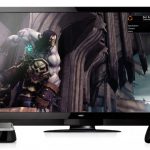
It took just about six months for the first generation of Google TV to be declared a failure. Logitech launched its Revue set top box in October 2010, and by July 2011, they couldn't even give them away. The company subsequently took a $30 million writedown on the venture, and Intel, who provided chips for Google TV, quietly divorced itself from the product.
Google aligned with Marvell, switching the platform over to the ARM instruction set, which fundamentally shifted the architecture and splintered development.
Microsoft keeps the old Surface alive with Perceptive Pixel buy

While Microsoft has turned to the smaller touchscreen with its Surface tablet, the company hasn't forgotten about its roots in large-format touch screens and the original Surface (now PixelSense). Microsoft announced the acquisition of Perceptive Pixel on Monday, one of the leading large-scale, multi-touch display solution providers.
You are probably already familiar with Perceptive Pixel's technologies, although you may not realize it. CNN began using the company's touch displays during the 2008 presidential election and has used them ever since. Perceptive Pixel also has customers across other sectors, including government, defense, energy exploration, engineering, and higher education.
Keep your PC healthy with Uniblue Powersuite 2013

System optimization tools are ten-a-penny, but those that are worthy of note are few and far between. One tool that falls into the noteworthy camp is Uniblue Powersuite, which has just been updated to version 2013. This comprehensive suite of optimization tools has received a major facelift that makes its various components easier than ever to navigate and provides you with helpful information about the health of your system.
The redesigned interface finds the suite’s tools divided up into three main sections -- speed tools, system optimization and disk optimization -- but there is also a general Overview section that gives you a quick insight into the state of your computer. The Speed Tools section covers all of the basics such as CPU management to better balance CPU load as well as improveing the launch times of various programs by caching the resources they use. There’s also a proactive thumbnail generator that eliminates the need to Windows to create image thumbnails on the fly.
New Android malware threat: over 100,000 devices infected so far

Malware on Android devices is a real and growing threat, and one that is only likely to worsen. The latest Trojan to be found in the wild is a particularly nasty piece of coding named MMarketPay.A by TrustGo, the mobile security company that discovered it. Believed to have infected more than 100,000 smartphones in China, the Trojan downloads paid apps and videos from Mobile Market (M-Market), China Mobile’s official app store, without the user’s knowledge, resulting in some pretty hefty bills.
The malware is picked up by downloading infected apps from one of nine app stores (nDuoa, GFan, AppChina, LIQU, ANFONE, Soft.3g.cn, TalkPhone, 159.com and AZ4SD) and once installed on a device, it bypasses M-Market’s SMS security step, and begins placing orders and downloading content.
Will you buy Windows 8?
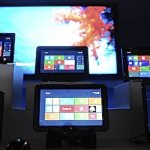
I told you so back in February that Windows 8 would debut in October -- not that it was rocket science to me. Nevertheless I wrote: "Windows 8 must RTM by end of August to make October launch, which is best timeframe assuring the channel is stocked for Black Friday". Today, Microsoft revealed that its next-generation operating system would release to manufacturing in early August and be available at retail in October.
Microsoft's timing is sheer brilliance. We already know that Surface tablets will ship simultaneously with Windows 8, and OEMs have shown off a boatload of new models coming for the holidays. Apple plans to release OS X Mountain Lion this month, perhaps in days. Anyone considering a shiny new Mac suddenly has reason to wait. Will Surface or Windows 8 slates be worth the wait? Mountain Lion's user interface is oh-so yesterday, while Windows 8 Metro is oh-so tomorrow -- well, for anyone who actually likes it. Now that we know when, it's time to ask if you will buy. That's a question you can answer in comments and the poll below the fold.
Microsoft announces Windows 8 for October retail release
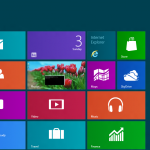
At the 2012 Microsoft Worldwide Partner Conference in Toronto, Canada, Microsoft CFO and Chief Marking Officer Tami Reller finally revealed the time when we can expect Windows 8 to hit the market.
During her keynote presentation, Reller talked about the new features of the Windows platform and how it will work with its deployment partners. Of course, the bigest news was that the final build of Windows 8 will reach RTM (release to manufacturing) in the first week of August.
IT isn't powerless against the death squads of corporate America

About 10 weeks ago, I wrote a six-part series of columns on troubles at IBM that was read by more than three million people. Months later I’m still getting ripples of response to those columns, which I followed with a couple updates. There is a very high level of pain in these responses that tells me I should do a better job of explaining the dynamics of the underlying issues not only for IBM but for IT in general in the USA. It comes down to class warfare.
Warfare, to be clear, isn’t genocide. There are IT people who would have me believe that they are complete victims, powerless against the death squads of corporate America. But that’s not the way it is. There’s plenty of power and plenty of bad will and plenty of ignorance to go around on all sides here. Generally speaking, though, the topic is complex enough that it needs real explaining -- explaining we’re unlikely to get elsewhere in an election year dominated by sound bites.
Bitdefender Internet Security 2013 review
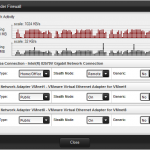
If you like your security suites to be feature-rich then Bitdefender’s offerings have always been a good choice. And the company’s latest releases show there’s no sign of that changing any time soon: Bitdefender Internet Security 2013 includes all the core functionality you’d expect from a suite (antivirus, firewall, spam filter, parental controls) and a lot you probably wouldn’t (virtual “Safepay” browsing, USB autorun virus protection, more).
All this power doesn’t seem to add much in the way of complexity, though. Installation is straightforward, with a single small setup tool scanning your system for threats, downloading the full suite and installing it for you with the minimum of hassle.
Celebrate July with one of these 19 software downloads

The halfway point of the year has come and gone, and as we slide our way through the calendar, there are more and more software releases to keep track of. If you’ve been busy through the first week of July, here are some of the highlights that you may have missed.
Starting off this week’s selection of titles are a number of tools with a connection to the Internet. Connectify Lite 3.5 is a great free tool that can be used to turn your laptop onto a WiFi hotspot that can be used by other laptops or mobile phones. If you want to use the Internet as a platform for your photography, jAlbum 10.8 can be used to share your photos online. ShareMeNot is a browser extension that can be used to prevent social networking buttons from tracking you line -- it is available as ShareMeNot for Firefox 2.0.1 and ShareMeNot for Chrome 1.0.
Someone save us from these huge Android smartphones
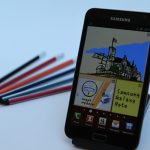
One thing that I can’t seem to get to grips with: The way manufacturers think we all have the hands of a basketball player. I’m not joking, as I’m not there yet. Look at all the new smartphones -- they are all bigger than before. It begs the question: when is enough enough?
I’m going to say it now, so I can get it over with: I don’t like big phones. I’m a guy, and I love a great display as much as the next person. But I can’t seem to love big phones. To me, a smartphone should work as a phone in the first place and as a smartphone second. I do make plenty of calls each day, and I place much value on the size of the device; it needs to fit comfortably in my pocket.
Does your screensaver interrupt too often? Try Cyber-D AntiScreensaver

Setting up a Windows screensaver is easy enough: just tell the system to wait for five minutes, say, and once you’ve been inactive for that period of time (no keypresses, no mouse movements) your preferred screen saver will be launched.
But of course the problem here is that inactivity doesn’t necessarily mean you’re away from the PC; you might be watching a video, or just monitoring some regularly updated webpage (stock prices, say). Ideally you need a little more control over exactly when the screensaver (or the power option to turn your PC off) is executed, then, and that’s exactly what Cyber-D’s AntiScreensaver provides.
Nexus Q first-impressions review

Google's first consumer electronics device is a baffling beast. Its industrial design shames Apple TV, Roku and other cloud-connected set-top devices, while the user interface will confuse some people accustomed to a single remote to scan content on the big screen. Nexus Q is all about the cloud and smartphone. The TV's role is viewing, and little more. Price is another matter -- $299, same as Apple TV at launch more than five years ago. But that device sells for $99 today, and, granted, offers far fewer options to delight videophiles and audiophiles.
Nexus Q's promise: Your content anytime and anywhere there is a cloud connection -- and your friends' and families', too. Google calls the device the "first social streaming media player", and there's truth in the claim. But many of the basic streaming and control functions can be achieved simply by connecting your smartphone to the television. If you're going to use the handset as remote anyway, you could just as easily use it as source. That said, Nexus Q is delightful and its concepts represent a leap forward for media player industrial and user-interface design.
You CAN recover stolen or lost gadgets, but it ain't easy

We carry expensive gadgets on us all the time now. On a flight we listen to music on an iPhone or read on a Kindle ebook reader. We watch movies on an iPad or play Angry birds on an Android. But what do you do if you misplace that device, or worse it is stolen? What recourse do you have to get it back, if any? Who do you call, or contact for help, and what can you do to be prepared beforehand to help in getting it back yourself?
In this article I will do a quick rundown of types of devices that are most commonly lost or stolen and go over some basic rules of the road beforehand with any new gadget or device you have.
Techdom's Apple aura problem

Last week, Google unveiled its first consumer electronics device -- Nexus Q. If Steve Jobs were still alive and had announced the same product as "one more thing", there would be headlines everywhere that Apple had done it again -- that the fruit-logo company raised the bar and demonstrated its brilliance at design and innovation.
Nexus Q is a remarkable product. The sphere changes fundamental concepts about entertainment. Content is in the cloud. Smartphones control the device, and they're also where users interact with content (e.g., small versus big screen). Users can share, say, music on the same device -- not one but anyone is in control -- and all without wonky, local digital rights management. Nexus Q attaches to any modern TV or sound system, and because content is in the cloud it's available anywhere the device goes. The sphere is beautifully constructed, too. But Jobs didn't unveil the sphere, someone whose name you don't even recognize did. As such, Nexus Q is largely ignored because stigma is attached: Apple didn't invent it.
Most Commented Stories
© 1998-2024 BetaNews, Inc. All Rights Reserved. Privacy Policy - Cookie Policy.
